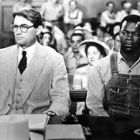Perspective Taking: ‘Putting yourself in the other person’s position and trying to understand that person’s point of view’.
This is one of the single most important constructive responses to conflict and yet one which proves so difficult sometimes. At a recent mediation involving an allegation of bullying, I was prompted to talk about the value and the need to Take Perspective. Two individuals had spoken at length, trying to explain their individual perspectives on what had occurred between them over a protracted period of time. It had been very distressing to each of them and both held a very different and entrenched view of the rights and wrongs of the situation, each one feeling unheard by the other.
We were mediating in a meeting room in a Hotel and the key card of the room was on the table in front of me. In an attempt to explain how two people could hold such a contrary view of events, I picked up the key and held it between them asking each one to describe what they saw. One described a blank white card and the other a white card with a graphic of the Hotel and text. Two different sides of the one card.
This to me was an example of how two people can describe the same thing from different perspectives. For as long as we chose to talk about the card, each one would describe it differently. So it was about the events that had occurred between them. As I saw it, each person’s perspective was similar to the two sides of the key card. They would never see the same thing because in reality, their experience and interpretations were different.
Despite being different, these two perspectives were inseparably connected. When both sides of the key card are accepted and acknowledged, it is only then that its true nature and function becomes apparent. Once it is accepted that there are two different images being described, it then becomes clear this is a two sided card which leads to the ultimate recognition of it as a key card.
So, if the same principle applied to the two divergent accounts of the same events, that one person’s truth was not the same as the other’s, that they were inseparably linked, yet different, maybe then the parties involved could start to look at the situation with more objectively and recognise its true nature. If the experience of both could be accepted rather than judged and debated to be right or wrong, in what way would this change how it would be described and what function could it serve?
It comes to mind for me that this dispute could be capable of validating and helping both parties rather than the need to have a ‘winner and loser’, a ‘victim and perpetrator’. Its purpose could be to open doors rather than lock them. In a practical way this could result in both parties learning from the experience to strengthen their management, communication and interpersonal skills. There may also be wider benefits for the company in recognising the factors that can contribute to workplace disputes, thereby building the management skills of the wider team, ultimately strengthening the resilience of the company.
‘You never really understand a person until you consider things from his point of view, until you climb into his skin and walk around in it’…. From ‘To Kill A Mocking Bird’ by Harper Lee
Mary Lou










